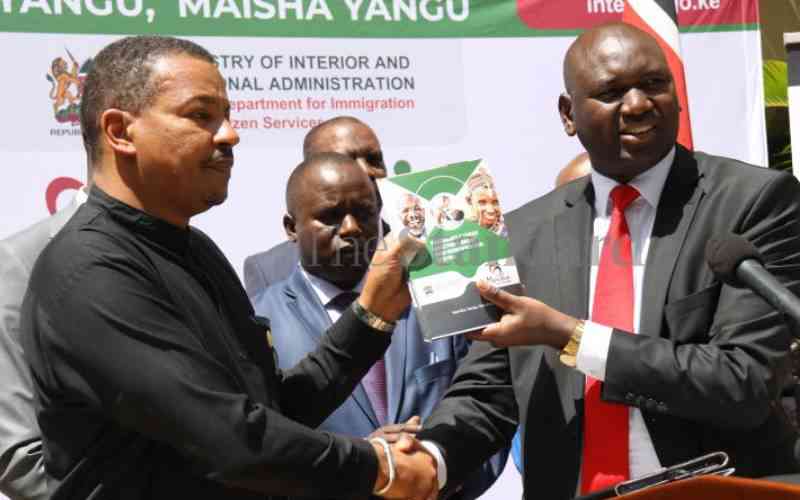×
The Standard e-Paper
Home To Bold Columnists

All applicants for national identity cards will be the first to be issued with Maisha Card.
Immigration and Citizens Services Principal Secretary Julius Bitok yesterday said the piloting phase will take place in all parts of the country as the government rolls out the issuance of digital cards.